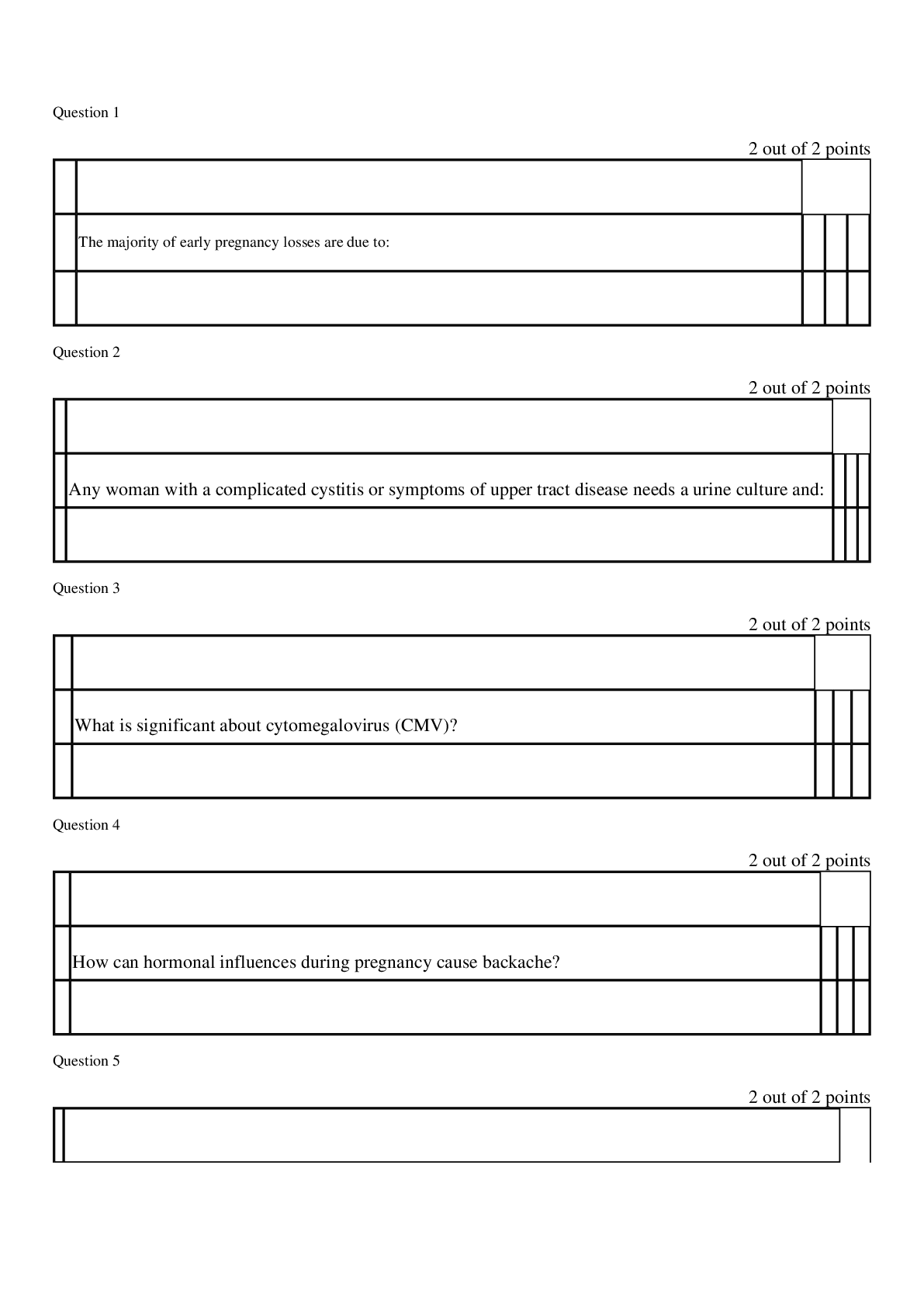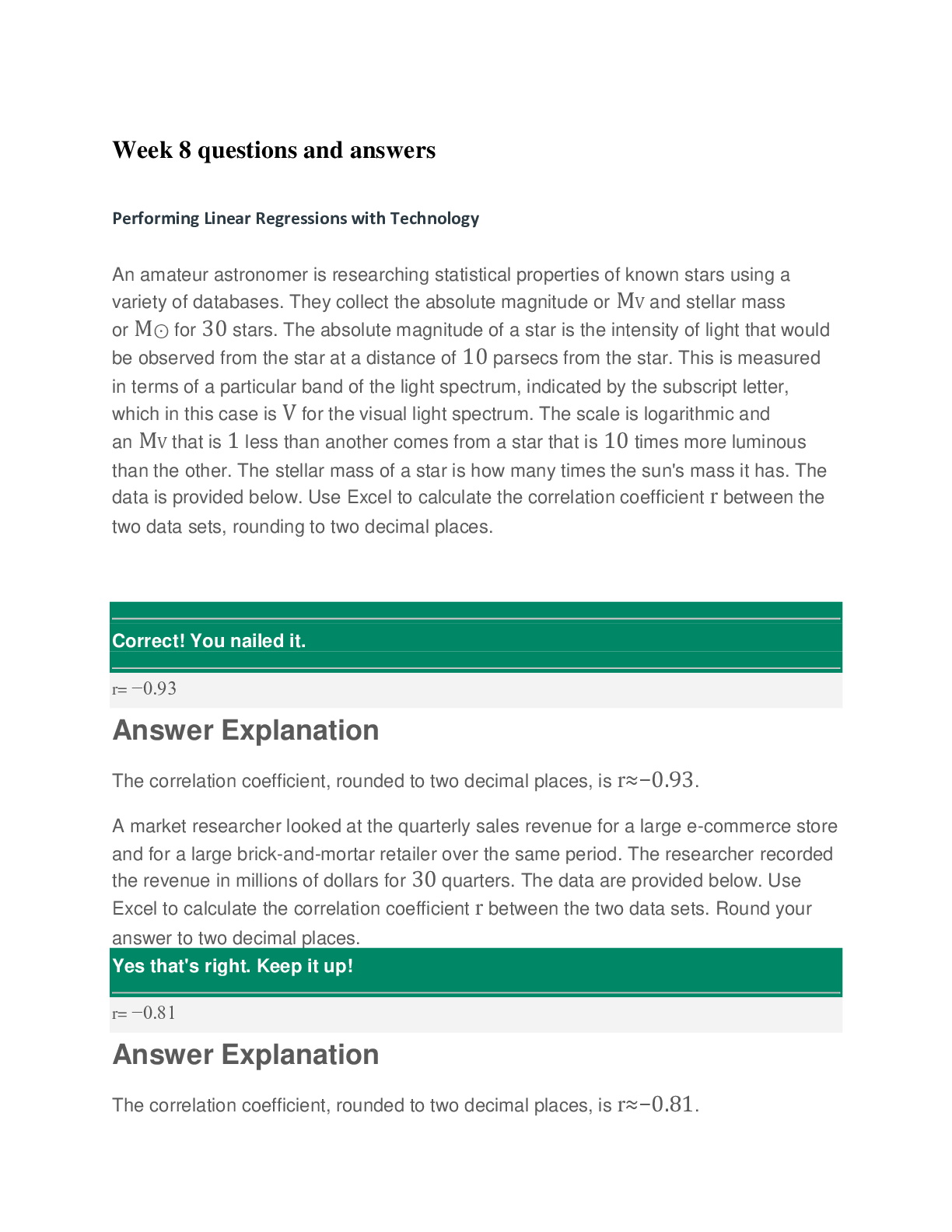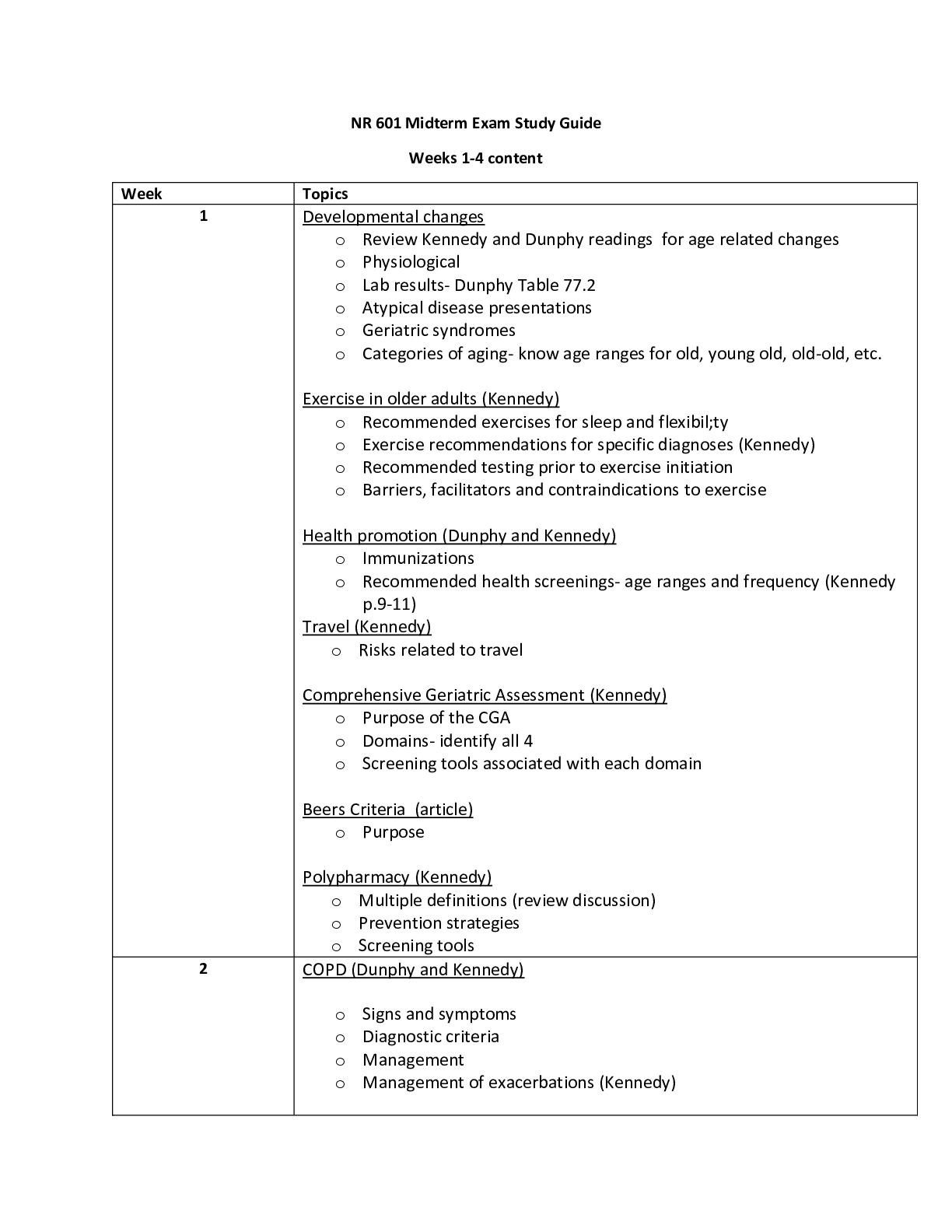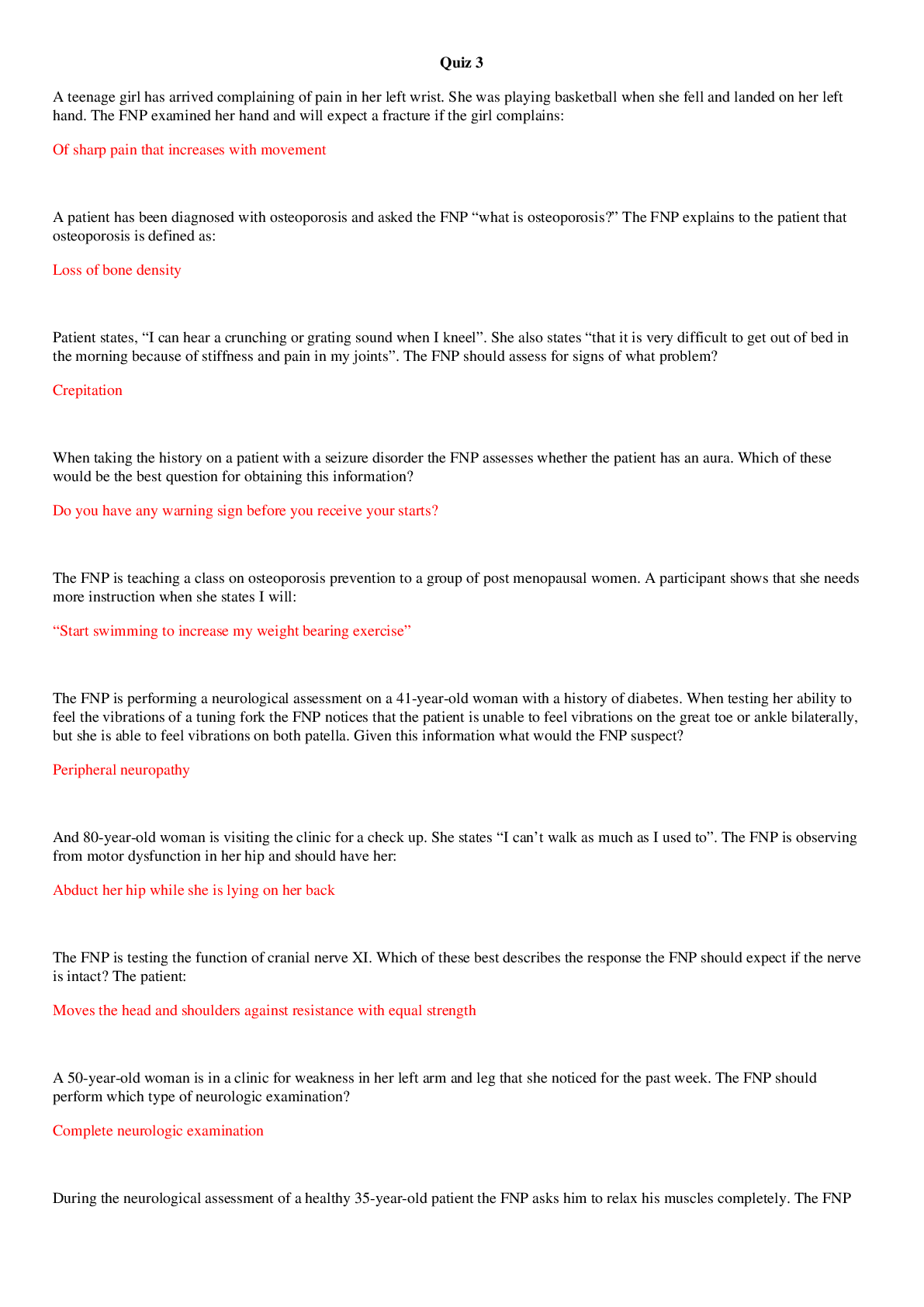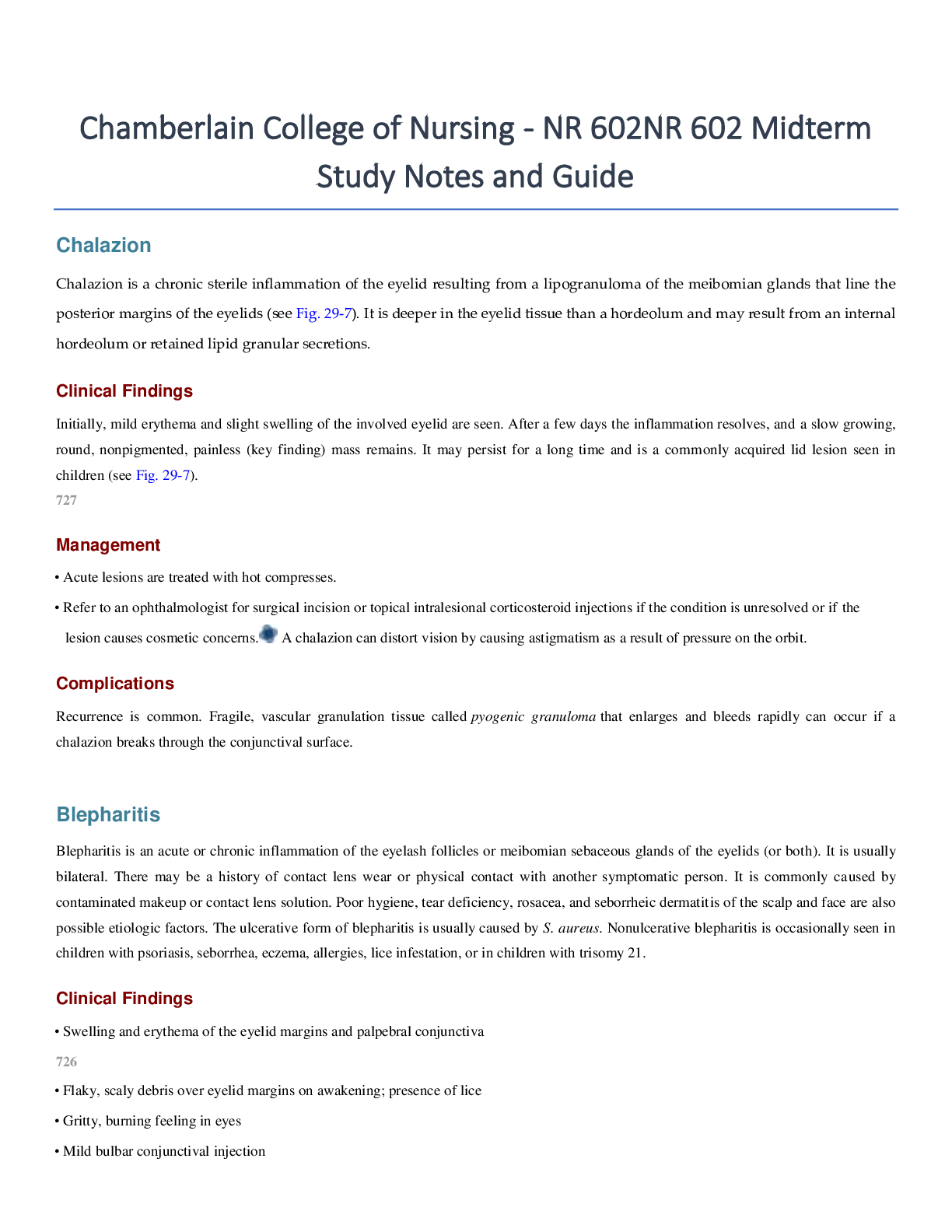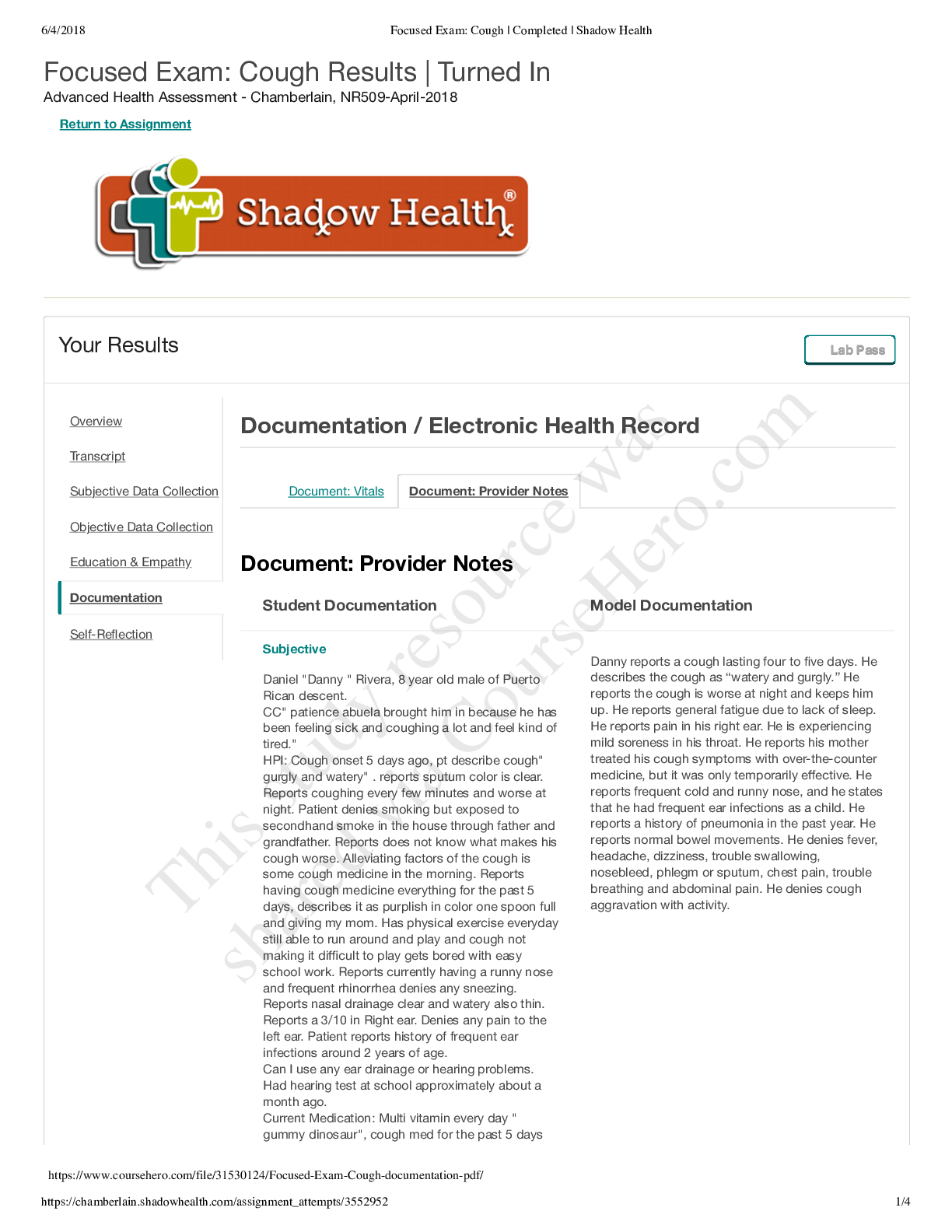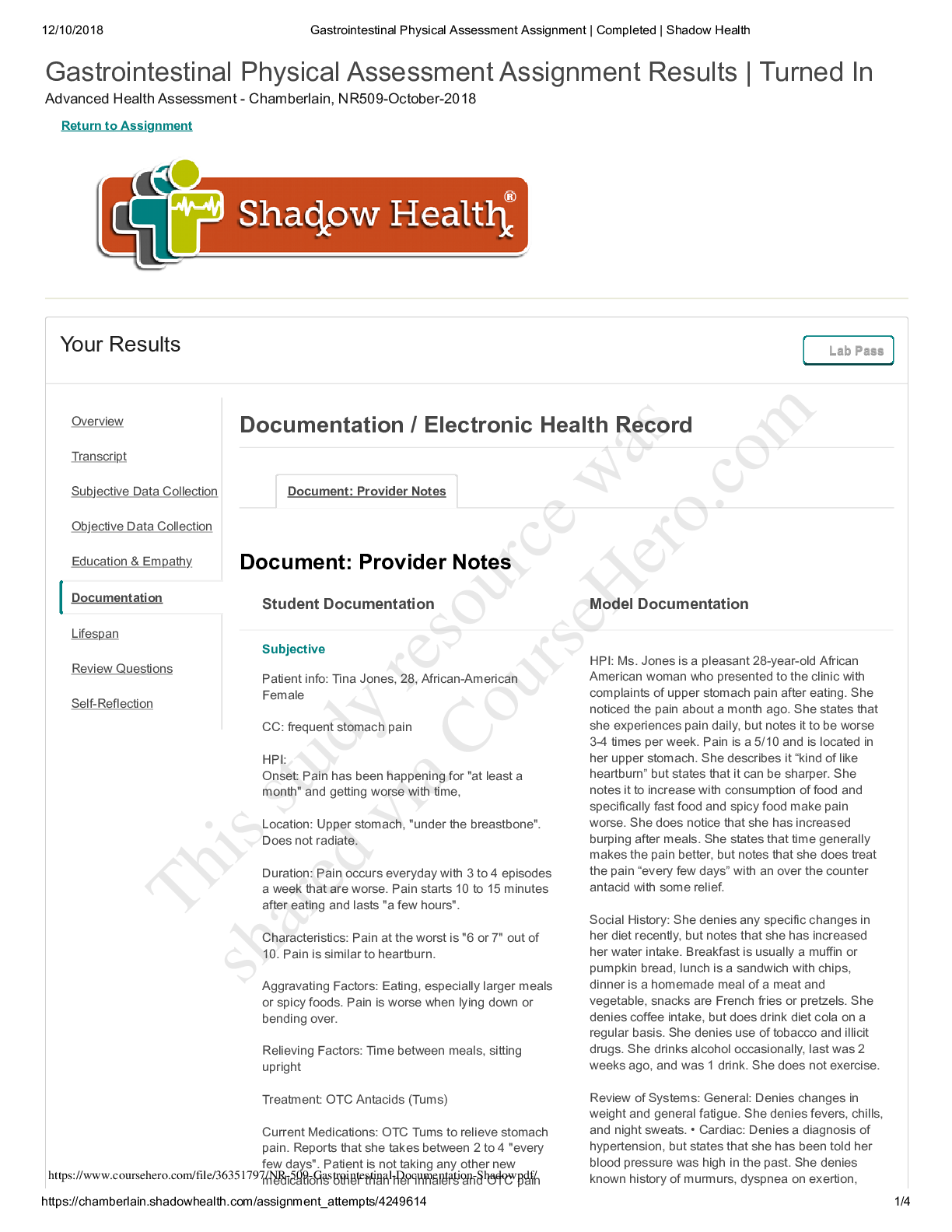*NURSING > STUDY GUIDE > Chamberlain College of Nursing - NR 507 FNP1 Exam 2 Lower Respiratory Tract Infections Study Guide. (All)
Chamberlain College of Nursing - NR 507 FNP1 Exam 2 Lower Respiratory Tract Infections Study Guide. Latest 2020
Document Content and Description Below
BELOW the level of the larynx Presentation depends on age, infecting organism and site of infection Viral etiologies – Flu A, RSV, human metapneumovirus (hMPV), VZV (chickenpox) B... acterial etiologies – S. pneumoniae (majority of bacterial pneumonias), H. influenzae, S. aureus, K. pneumoniae, Enterobacteriae (E. coli), anaerobes Atypical organisms – if inpatient or patient was just d/c’d and you suspect PNA, consider these o Mycoplasma pneumoniae, Legionella pneumophilia, Chlamydophila pneumoniae, Coxiella burnetii Signs of trouble breathing; pt may: o Widen nostrils and squeeze the muscles under his rib cage to try and get more out in and out of his lungs o May grunt when breathing and tighten his stomach muscles o Make a high-pitched whistling sound (wheeze) when he exhales o May have trouble drinking b/c may have trouble sucking/swallowing o Bluish tint around lips/fingertips Signs of dehydration: o Drinking less than normal o Dry mouth o Crying without tears o Urinating less often than normal Bronchiolitis Inflammation of the bronchioles o Swelling blocks airflow through the lungs, making it hard to breathe o Occurs most often in infants Can be caused by influenza, RSV, parainfluenza and hMPV Wheezing, retractions, dyspnea in children; cold symptoms in adults Spread through contact of respiratory droplets – gown and gloves? o Often spreads through families and child care centers Worry about dehydration May cause more severe illness in children with hx of cystic fibrosis, congenital heart disease, chronic lung disease, immune deficiencies, organ/BM transplants, chemo Tx: o Suctioning o Albuterol/ProAir – also Rx an aerosol chamber and mask! o Teach parents to look for s/s respiratory distress and F/U frequently Bronchitis Inflammation of the larger, more central airway bronchial tubes (larger airways that carry air to your lungs) Main goals of acute/chronic bronchitis tx are to relieve symptoms and make breathing easier Abx usually aren’t prescribed b/c they don’t work against viruses (most common cause) Acute Bronchitis: o Most etiologies are viral – influenza, RSV, parainfluenza, rhinovirus, adenovirus o Usually have cold symptoms bronchitis Fever and URI symptoms for about 6 days 2 Dry hacking cough initially; becomes productive Chest pain aggravated by coughing o Main symptom is a persistent cough which may last for 10-20 days Smokers – may last up to 6 weeks May be productive with clear mucus If yellow/green mucus, may be bacterial May also have wheezing, low-grade fever, chest tightness/pain, SOB Children may have a runny nose, mild fever, coughing up sputum or vomiting mucus Tx SUPPORTIVE! Symptoms improve in 5-10 days Bacterial – Amoxicillin/Augmentin Analgesics, hydration Bronchodilators if wheezing Avoid antihistamines and cough suppressants Antiviral if positive for influenza A and underlying condition Macrolide is suspected for M. pneumoniae or C. pneumonia o Chronic Bronchitis: Productive cough lasting > 3 months Symptoms of other diseases: Allergies, asthma, CF, cigarette smoking, GERD Tx Treat cause; avoid irritants [Show More]
Last updated: 2 years ago
Preview 1 out of 39 pages

Buy this document to get the full access instantly
Instant Download Access after purchase
Buy NowInstant download
We Accept:

Reviews( 0 )
$15.00
Can't find what you want? Try our AI powered Search
Document information
Connected school, study & course
About the document
Uploaded On
Oct 09, 2020
Number of pages
39
Written in
Additional information
This document has been written for:
Uploaded
Oct 09, 2020
Downloads
0
Views
93











